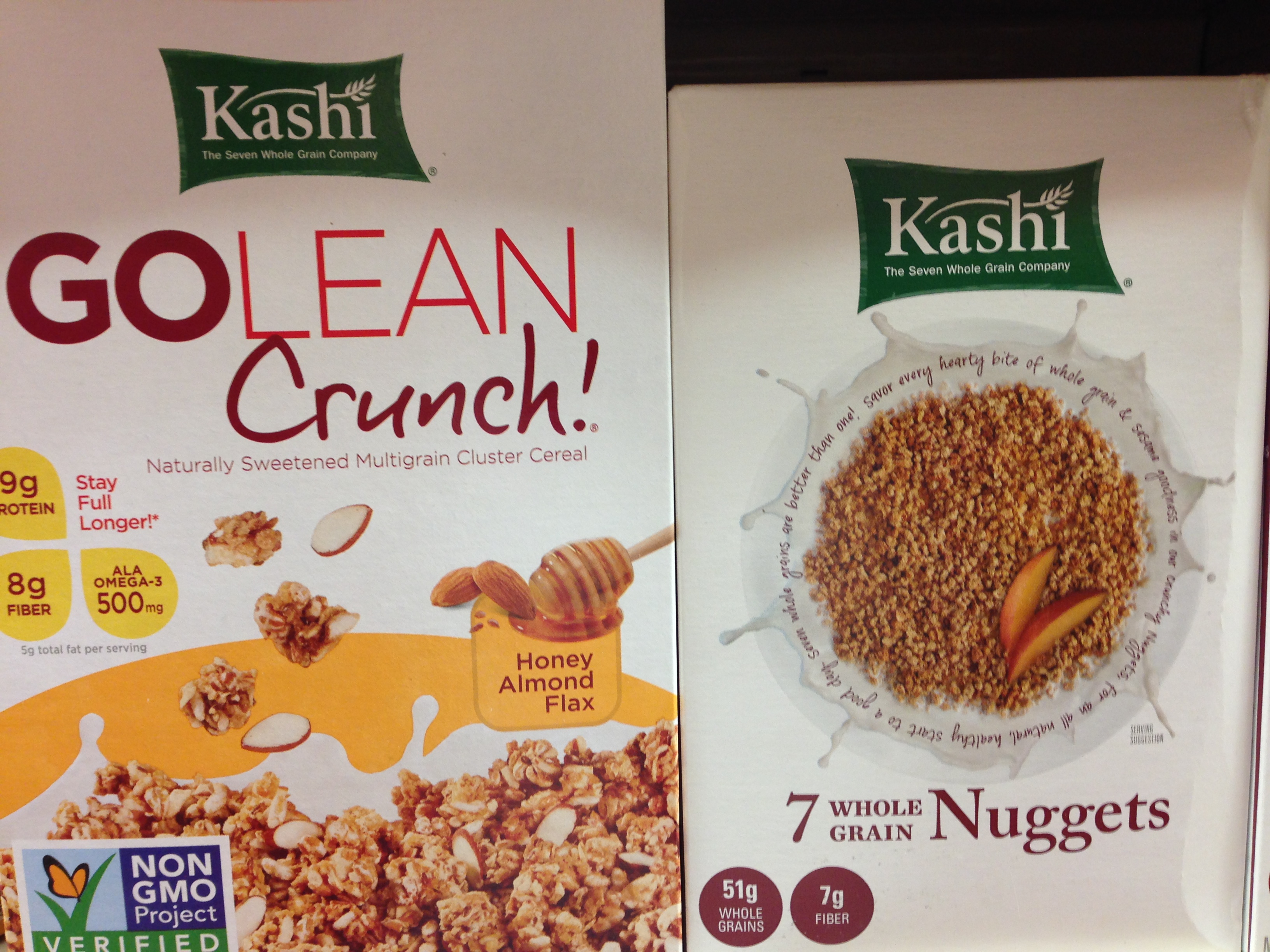Ingredients with the names pyridoxine hydrochloride, calcium pantothenate, and hexane-processed soy ingredients don’t sound very natural, but they are apparently used in Kashi products. A class-action lawsuit was filed alleging Kashi mislead consumers by using the phrases “all-natural” and “nothing artificial” on its packages. Kellogg Co., the parent company of Kashi, agreed to pay $5 million dollars to settle the class action and agreed to change its formulas or labels by the end of 2014.

As stated in a recent NY Times article:
Kashi, once a darling of shoppers favoring organic and natural foods, has hit turbulence in recent years. Some consumers attacked it on social media in 2012 after learning that Kellogg was a big contributor to an effort that helped defeat Proposition 37, a California ballot initiative that would have required the labeling of products containing genetically engineered ingredients. http://www.nytimes.com/2014/05/09/business/kellogg-agrees-to-change-labeling-on-kashi-line.html?ref=health&_r=0
While most folks perform an exaggerated eye-roll upon hearing the words “class action lawsuit,” it is a powerful tool to change the bad behavior of a company that may use false claims or advertising to make a profit. Clearly, it would never be economically feasible for an individual to bring a solo action against a large company for a product that only cost a few dollars. Class actions, however aggregate a large number of individualized claims into one representational lawsuit. Class actions also avoid the situations where different court ruling would potentially create different outcomes and inconsistent standards of conduct for the defendants to follow.


